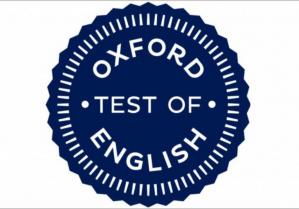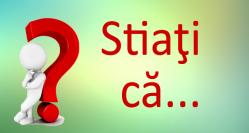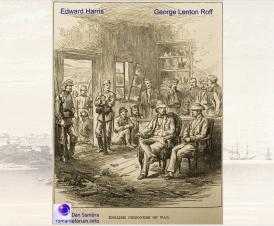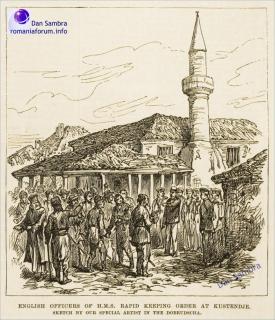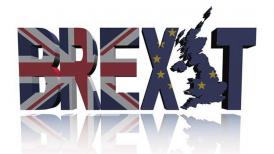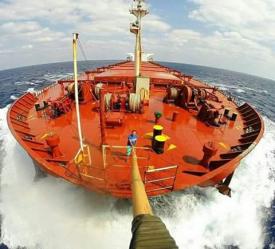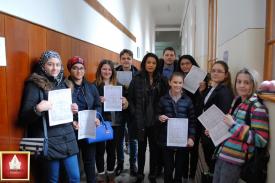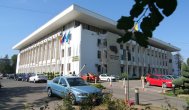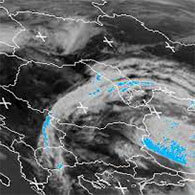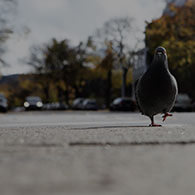Columbus Day (Second Monday in October)
Columbus Day (Second Monday in October) 1678
Marime text
1678
Marime text
A number of nations celebrate this encounter with annual holidays: Discovery Day in the Bahamas, Hispanic Day in Spain, and Día de la Raza in much of Latin America. In 1971, Congress moved the U.S. holiday from October 12 to the second Monday in October, to afford workers a long holiday weekend. In the United States, Columbus Day is typically a celebration of Italian and Italian-American cultural heritage, Columbus generally being considered a native of Genoa.
In the late fifteenth century, Portuguese sailors dominated the effort to establish a sea route between Europe and India by circumnavigating Africa. It was with an eye toward outflanking the Portuguese that Isabella I of Spain authorized an expedition in which Columbus would sail west from Spain, aiming for India. This of course presumed that the world was round. Contrary to later popular belief, many educated people already understood this; Columbus' achievement rests instead in his success in persuading Isabella to finance a dangerous and speculative expedition.
Columbus set sail with 90 men in August 1492 on three ships: the Santa Maria, the Nina and the Pinta. After sailing west for five weeks, they reached land on October 12. Columbus believed he had found a new route to India, hence the use of the word Indians to describe the peoples he met.
Columbus would make three subsequent voyages and would die believing that he had found a new route to India and Asia, and not in fact the gateway to North and South America.
Because the United States evolved out of British colonization rather than the Spanish claims of Columbus and his successors, the U.S. for many years did not celebrate Columbus's "discovery," although ceremonies were held on the 300th and 400th anniversaries of his first landing. Two early celebrations also occurred in New York in 1866 and San Francisco in 1869.
Italian immigrants were the first to celebrate the holiday annually in U.S. cities where they had settled in large numbers, in part as a celebration of their heritage, since Columbus was believed to be Italian. In 1937, President Franklin D. Roosevelt proclaimed Columbus Day a national holiday, then held every October 12 and now on the second Monday in October.
U.S. federal government offices close on Columbus Day, as do most banks. Schools typically remain open, as do most American businesses. New York City continues to host a large and festive Columbus Day parade, over 500 years since the historic appearance of three ships off the coast of a small Caribbean island.
Columbus Day, 2006
A Proclamation by the President of the United States of America
More than five centuries ago, Christopher Columbus boldly set out on a long and challenging journey across the Atlantic that led the way for exploration of the Americas. On Columbus Day, we celebrate the historic voyages of the Italian explorer and honor his life, heritage, and lasting legacy.
Columbus' brave expeditions expanded the horizons of human knowledge and inspired generations of risk-takers and pioneers in America and around the world. Our Nation is built on the efforts of men and women who possess both the vision to see beyond what is and the desire to pursue what might be. Today, the same passion for discovery that drove Columbus is leading bold visionaries to explore the frontiers of space, find new energy sources, and solve our most difficult medical challenges.
Columbus Day is also an opportunity to celebrate the heritage we share with the legendary explorer, the important relationship between the United States and Italy, and the proud Italian Americans who call our Nation home. Italian Americans have strengthened our country and enriched our culture, and through service in our Armed Forces, many have defended our Nation with courage and helped lay the foundation of peace for generations to come.
In commemoration of Columbus' journey, the Congress, by joint resolution of April 30, 1934, and modified in 1968 (36 U.S.C. 107), as amended, has requested that the President proclaim the second Monday of October of each year as "Columbus Day."
NOW, THEREFORE, I, GEORGE W. BUSH, President of the United States of America, do hereby proclaim October 9, 2006, as Columbus Day. I call upon the people of the United States to observe this day with appropriate ceremonies and activities. I also direct that the flag of the United States be displayed on all public buildings on the appointed day in honor of Christopher Columbus.
IN WITNESS WHEREOF, I have hereunto set my hand this fifth day of October, in the year of our Lord two thousand six, and of the Independence of the United States of America the two hundred and thirty-first.
GEORGE W. BUSH
USEFUL RELATED LINKS
Today in History - Library of Congress:
http://memory.loc.gov/ammem/today/oct12.html
1492 An Ongoing Voyage - Library of Congress:
http://www.loc.gov/exhibits/1492/
The Age of Exploration - Mariners' Museum:
http://www.mariner.org/educationalad/ageofex/columbus_death.php
Christopher Columbus - Encarta
http://encarta.msn.com/encyclopedia_761568472/Columbus_Christopher.html
Columbus Day, October 12 - Holiday Zone
www.theholidayzone.com/columbus
Just Where Was Columbus? - Infoplease:
http://www.infoplease.com/spot/columbus.html
Beyond Columbus: Teaching the Lessons of 1492 - Education World:
http://www.education-world.com/a_curr/curr167.shtml
The Indians' Discovery of Columbus - Yale-New Haven Teachers Institute:
http://www.yale.edu/ynhti/curriculum/units/1992/2/92.02.01.x.html
Other Worlds: The Voyage of Columbus - EDSITEment:
http://edsitement.neh.gov/view_lesson_plan.asp?id=322
Should We Celebrate Columbus Day? - Education World:
http://www.education-world.com/a_tsl/archives/01-1/lesson0028.shtml
Urmareste-ne pe Grupul de Whatsapp
 Fondul Documentar Dobrogea de ieri și de azi
Fondul Documentar Dobrogea de ieri și de azi





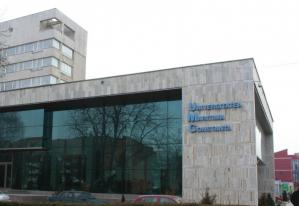

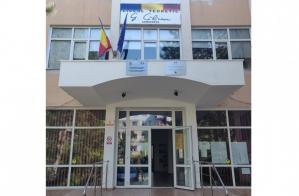
_thumb2.jpg)

